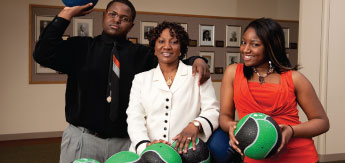The suicide of a loved one can be a devastating experience for those left behind and can cause intense feelings of guilt, regret, and anger. The bereavement process can be long and traumatic, not only for family members, but can also impact the community as a whole. In a neighborhood such as South Boston, which has the highest rate of suicide in the city (Health of Boston 2012-2013, Boston Public Health Commission), these repeated experiences have become an important community health issue.
In an effort to address suicide as a chronic disease, South Boston CAN Trauma Response Team, in partnership with Massachusetts Department of Public Health and Samaritans (suicide hotline), hosted an all day educational forum, entitled, “Grief After Suicide: Finding Hope & Healing.” The discussion was lead by psychologist, Dr. John R. Jordan, who has over 30 years of experience in grief counseling. Over 65 clinicians, clergy and survivors participated in this event.
The afternoon workshop was targeted to professional caregivers and focused on an overview of the impact of suicide on survivors and respecting and honoring the different grieving styles of clients. The evening workshop was geared towards people who are grieving the loss of a loved one to suicide, and allowed for survivors to construct a shared narrative and respect for each other’s pain.
Kay Walsh, Project Director for South Boston CAN & BACH Steering Committee Member, explained that one of the most important things that came out of the event is dispelling myths about the grieving process: “There is a misconception around how long an individual should grieve. They are expected to grieve for no more than a year and then move on.” However, the process is more like what Dr. Jordan described as “climbing a spiral staircase.” As a survivor makes progress, every now and then they return to the trauma or are re-triggered by a new incident. Walsh stated, “it takes intense work to move on and it’s a long process. Recovery is not just about resolving the issue and getting over the situation, but integrating self- care models into our daily lives.”
How does this relate to the bigger picture? These trauma experiences do not happen in isolation. Suicide, like many incidences of trauma, can be an “impact death,” meaning the death has a ripple effect that goes beyond the immediate family to impact the well being of the entire community. When it happens often, it becomes a community health issue.
What about abuse? What about violence? What about racism? The concepts mentioned here are relevant for these trauma experiences as well. Experiencing multiple gun shootings or racist situations can be just as devastating. There is a need to address ways to reduce trauma in all of these instances on a systemic level.
“The multiple traumas people experience is unbelievable,” Walsh said. “We need more advanced training open to both professionals and families-it’s critical for our resiliency.”
For more information, please contact Kay Walsh, Project Director for South Boston CAN, kaywalsh13@hotmail.com.

